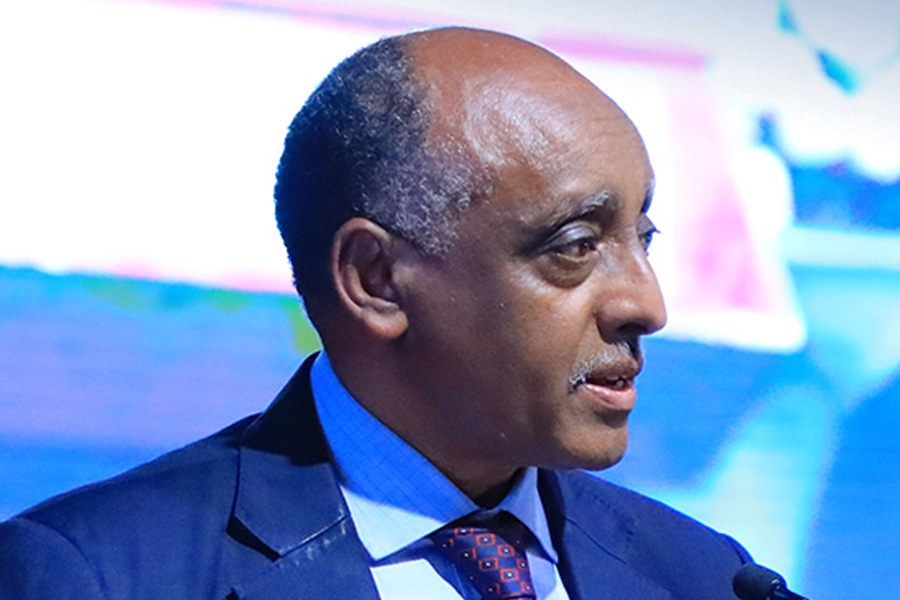
Advertorials | Jun 05,2023
Sep 3 , 2022
By Christian Tesfaye
Safaricom has finally begun operations in Ethiopia, in a way. It is a “large-scale customer pilot” of its services in Dire Dawa and Harar as it prepares for a national launch in October 2022. It offers data services on networks up to 4G, text messages and voice calls. The telecom operator hopes to expand services to 25 cities by April next year, hopefully without more delays.
The consensus on the streets seems to be that Safaricom will eat Ethio telecom for breakfast. Almost everyone I speak to cannot wait to switch over. Internet and financial services penetration are low in the country, so Ethio telecom may have some breadcrumbs to nibble on, but not many people consider it a strong competitor to the Kenyan giant.
Is this true? What is the case for Safaricom Ethiopia? What are its strengths, and what of its weaknesses?
Start with the advantages. Safaricom is a big company with the ability to deploy significant capital and bring together state-of-the-art infrastructure and management. Its financials are intimidating. It commands around two-thirds market share in Kenya against four other players. It has nearly 2.5 billion dollars in revenue, half a billion dollars in net income and over half a billion dollars in free cash flow. Its mobile payment arm, M-Pesa, which might as well be a financial service company on its own, and accounts for over a third of service revenue, is the stuff of legends in financial inclusion.
But that is all in Kenya. Can such success be replicated in Ethiopia? Kenya’s neighbour to the north is still a novice to digital payment services. At this early stage, M-Pesa could be a significant force if introduced in the not-too-distant future. While mobile financial services have shown impressive growth over the past year, the potential remains untouched as attitudes and awareness, not to mention infrastructure, are not well entrenched.
In telecom services, too, opportunities abound. Safaricom is a financially healthy company that can afford to take risks, hire the best managers, recruit world-class (or close to it) talent and put in place a robust infrastructure. Its business and technical muscle could be brought to bear in Ethiopia, a financially and digitally underdeveloped country compared to Kenya.
Geopolitics is also favourable to Safaricom. Even with a new administration in Nairobi, it is unlikely that diplomatic relations would cool. Safaricom has the ear of leaders in Kenya, and those people remain good friends with the folks in Arat Kilo. It may not be an immediate family member in Ethiopia, like Ethio telecom, but it is at least a cousin.
The Ethiopian government would also want Safaricom to succeed, perhaps not actively rooting for it to take more than half of the market share but as a positive return on investment. It is an anchor FDI into Ethiopia and the biggest one. The government would want to show prospective foreign investors that the country is a promising and business-friendly investment destination. It is incentivised to give Safaricom a fair shake instead of blatantly favouring Ethio telecom. Of course, whether government officials recognise this is another matter.
But a few significant obstacles must be overcome for Safaricom to beat its local competitor. A non-exhaustive list would include Ethio telecom’s business case, issues with being a multinational company and Ethiopia’s jungle law. These issues help inform the delayed service launch and operations going forward.
Ethio telecom is not as bad a business as many would claim. It is not being run as poorly as it used to before Frehiwot Tamiru took over management. The speed at which it has transformed itself, recognised the importance of pricing strategy, brandished its brand as a business and aggressively invested in financial services is impressive.
It is not yet a player on the level of Safaricom in its home base of Kenya but it has come a long way as a well-managed company and will have home advantage if it plays its cards right. First-mover advantage is not a small thing, especially for a company that can adapt fast and take risks.
There is also the issue of management. In war, good generals could be key in securing victory even when the opponent is well-armed and has strength in numbers. How well Safaricom does will be determined by the performance of its generals. Do they have a good understanding of the lay of the land? How will they march their army into the battleground for market share?
Remember, the United States turned the tide of the war resolutely in favour of the Allied forces in World War II. But it was whipped in dirt-poor countries twice: Vietnam and Afghanistan. The same applies in business. Amazon is the undisputed king of e-commerce in the United States. In India? Not so much.
The brilliant performance of Safaricom in Kenya is no guarantee it will do as well here. Business in Ethiopia is not for the faint-hearted. It is the law of the jungle out here. Sure, I could be the greatest Formula One driver in the world but unpaved, pothole-riddled roads are a whole different story.
I hope Safaricom will be profitable down the road. It does not matter who gains the upper hand but that there is competition. Let the best operator win.
PUBLISHED ON
Sep 03,2022 [ VOL
23 , NO
1166]


Advertorials | Jun 05,2023

Fortune News | Aug 30,2025

Delicate Number | Jul 13,2024

Radar | Nov 27,2023

View From Arada | Sep 01,2024

Radar | Oct 12,2024

Radar | Dec 15,2024

Featured | May 03,2024

Fortune News | Apr 30,2021

Sponsored Contents | Nov 28,2024

Photo Gallery | 171940 Views | May 06,2019

Photo Gallery | 162174 Views | Apr 26,2019

Photo Gallery | 151938 Views | Oct 06,2021

My Opinion | 136330 Views | Aug 14,2021





Dec 22 , 2024 . By TIZITA SHEWAFERAW
Charged with transforming colossal state-owned enterprises into modern and competitiv...

Aug 18 , 2024 . By AKSAH ITALO
Although predictable Yonas Zerihun's job in the ride-hailing service is not immune to...

Jul 28 , 2024 . By TIZITA SHEWAFERAW
Unhabitual, perhaps too many, Samuel Gebreyohannes, 38, used to occasionally enjoy a couple of beers at breakfast. However, he recently swit...

Jul 13 , 2024 . By AKSAH ITALO
Investors who rely on tractors, trucks, and field vehicles for commuting, transporting commodities, and f...

Oct 4 , 2025
Eyob Tekalegn (PhD) had been in the Governor's chair for only weeks when, on Septembe...

Sep 27 , 2025
Four years into an experiment with “shock therapy” in education, the national moo...

Sep 20 , 2025
Getachew Reda's return to the national stage was always going to stir attention. Once...

Sep 13 , 2025
At its launch in Nairobi two years ago, the Africa Climate Summit was billed as the f...

Oct 5 , 2025 . By NAHOM AYELE
In Meqelle, a name long associated with industrial grit and regional pride is undergo...

Oct 5 , 2025 . By BEZAWIT HULUAGER
The federal government is set to roll out a new "motor vehicle circulation tax" in th...

Oct 5 , 2025 . By NAHOM AYELE
The Bank of Abyssinia is wrestling with the loss of a prime plot of land once leased...

Oct 5 , 2025 . By BEZAWIT HULUAGER
The Customs Commission has introduced new tariffs on a wide range of imported goods i...